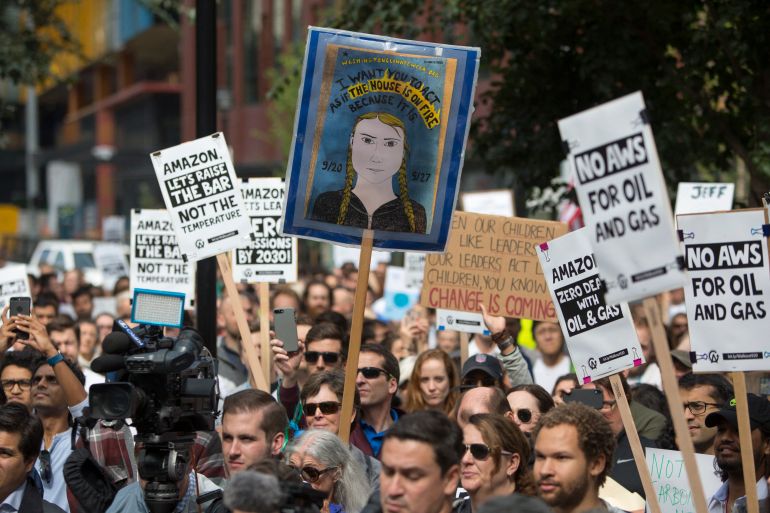The environmental and labour movements must work together
There is a growing recognition that environmental and social justice must go hand-in-hand.

For more than 15 years within the international labour movement, my focus was on environmentalism. I am now programme director at Greenpeace International. During my journey, with a foot in each of these two movements, we have seen huge changes.
We have all seen workers fighting back, challenging their hypocritical employers, forming unions and, with renewed energy, asserting their right to a decent job, protection and a voice in their workplace, their sector and their countries. But what I had the privilege of seeing and working on is equally exciting.
Keep reading
list of 4 itemsTurtles swimming to extinction in Malaysia as male hatchlings feel heat
Could shipping containers be the answer to Ghana’s housing crisis?
Thousands protest against over-tourism in Spain’s Canary Islands
When I became involved in the environmental conversations, there was an entrenched perception among unions that unless certain social conditions were met climate action should be delayed – as if fighting climate change was a bit of a bonus for a pacified, wealthy society.
In parallel, the environmental movement tended to think that trying to fix social inequalities or address job losses would waste precious time. Instead, a trickle-down idea prevailed that climate ambition could be exclusively driven by governments if they followed the science.
But the times are changing.
Now there is hardly any union on this planet that thinks that we can delay action on climate change. And there are good reasons for that shift in thinking.
Firstly, climate change is already impacting income and livelihoods. Supply chains are already vulnerable. Workers in sectors like agriculture, health, and construction, are in increasingly precarious situations, aggravated by climate impacts.
Secondly, the youth have mobilised on climate, adopted it as their generational struggle, and demanded that unions stand with them.
And thirdly, there is now a much stronger set of propositions for a just transition, including policies to support regions and workers, strong social protections, and a much higher level of ambition for green industrial policy.
The green movement has also changed. There is growing recognition that there can be no environmental justice without social justice. The challenges we must face are complex, involving multiple, intersecting crises and forms of oppression. The better we equip ourselves to address underlying systems of power, the more likely we are to win.
As part of this, we must remove power from those who want to stop positive change. That means taking on some of the richest people and companies in the world. Let us not be naive, our adversaries will not hesitate to manipulate workers and people in the most vulnerable situations to shield their own privileges.
We know there is no way we can reach the levels of climate ambition we need without mass public support. We have to connect to hearts and minds. This means a commitment to listen to people, even when that is difficult. This challenge is all the more essential when people’s livelihoods depend upon dirty industries in inevitable decline.
So there has been a shift away from a binary and artificial opposition between protecting jobs and protecting the environment, towards a dialogue about how we ride the tensions and dynamism a transformation of this magnitude generates. Together we can forge a future with both fulfilling lives and a liveable planet.
At Greenpeace, we see the fight for that future as another chapter in the story those workers have written over decades. We are all dreamers of a more sustainable future, so we organise and carry the standard of resilience and stubborn optimism. That is the spirit of the historical workers’ struggle: Never give up.
Building back in the wake of the COVID-19 pandemic, we need this spirit more than ever.
We must, together, leave behind this nonsensical inertia which prioritises greed, profit and competition to the detriment of us all. That is why, those who are convinced about the need to protect our global home must join workers in their call for the just transition we all need, where people and the planet are at the centre of decisions.
The views expressed in this article are the author’s own and do not necessarily reflect Al Jazeera’s editorial stance.
